By Herman Bashiron Mendolicchio (CreativeFED/ECBN) and Arkaitz Celaá Angulo (3Walks)
As the world navigates an era of profound transformation, the cultural and creative sectors are experiencing significant shifts driven by the triple transition—green, digital, and social. These interconnected forces are not only reshaping how we create and consume but are also redefining the skills needed by craftspeople, designers, and creative professionals.
Navigating the Triple Transition
The green transition demands a rethinking of materials, processes, and business models to reduce environmental impact and promote circularity. For crafts and design, this means embracing sustainable sourcing, low-impact production techniques, and longevity in products—while maintaining the cultural value and identity embedded in traditional practices.
The digital transition calls for new capacities in digital fabrication, immersive media, data-driven design, and online collaboration. These tools open fresh creative possibilities but also require targeted skill development, particularly for micro and small enterprises often operating outside of mainstream digital innovation pathways.
The social transition centers on inclusivity, community engagement, and cultural sustainability. Creative work is increasingly recognized for its role in shaping more equitable and connected societies—placing emphasis on interpersonal, intercultural, and co-creative skills that empower practitioners to work across diverse social contexts.
In this context, reskilling and upskilling become not just technical necessities but cultural and strategic imperatives.
The Role of CRAFT-IT4SD
The CRAFT-IT4SD project (Craft Revitalization Action for Future-proofing the Transition to Innovative Technologies for Sustainable Development) directly addresses these challenges by activating learning ecosystems grounded in emerging crafts and creative professions. These ecosystems are built on quadruple-helix partnerships that connect education, industry, government, and civil society—fostering local and regional excellence in cross-sector innovation and applied learning.
At the core of this strategy are a series of training workshops and collaborative learning communities, developed across four pilot clusters (Denmark, Spain, Finland, Romania). These workshops are more than skill-building sessions: they are experimental environments that track and amplify the pilots’ progress, identifying multiple pathways for impact. Here, heritage techniques and local knowledge intersect with new technologies and sustainable methods, positioning crafts and design as active drivers of climate adaptation, circularity, and digital transformation.
Key components of these learning ecosystems include:
- Micro-credentials aligned with industry needs and tailored learning pathways, recognizing specific competencies in digital, green, and creative fields.
- Integration of serious gaming, digital learning tools, and metaverse-based environments to enhance engagement and accessibility.
- A commitment to lifelong learning and employability, particularly for micro and small creative enterprises.
A Sustainable Skills Agenda for Creative Futures
CRAFT-IT4SD’s contribution is not limited to short-term training—it is also about shaping a durable, collaborative learning community that will live beyond the project’s timeline. Supported by a virtual platform, this network enables ongoing exchange between CCSI stakeholders, encourages knowledge-sharing, and fosters new pathways for collaboration and impact.
By combining practice-based learning, digital innovation, and sustainability, the project redefines what it means to develop skills in the 21st-century creative economy. It also ensures that crafts remain a vibrant, adaptive field—capable of responding to the most pressing challenges of our time while staying rooted in cultural heritage.
In this spirit, the project invites craftspeople, educators, policymakers, and cultural actors to co-create a skills agenda for the triple transition—an agenda where tradition meets innovation, and where creative professionals are empowered to shape a sustainable and inclusive future.
REFERENCES
Bocken, N. M. P., & Short, S. W. (2016). Towards a sufficiency-driven business model: experiences and opportunities. Environmental Innovation and Societal Transitions, 18, 41–61.
Clausen, R. T. J., Nielsen, M. S., & True, K. G. (2024). D2.1 Method Playbook. CRAFT-IT4SD. https://craft-it4sd.eu/wp-content/uploads/2025/03/CRAFT-IT4SD_Method-Playbook_Final_August-30-2024_revised.pdf
European Commission. (2021). European Skills Agenda for sustainable competitiveness, social fairness and resilience. Retrieved from https://ec.europa.eu/social/main.jsp?catId=1223
European Commission. (2021). Driving a green, digital & innovative European cultural heritage – Building our future from the past, Directorate-General for Research and Innovation, EU Research & Innovation, Publications Office, Retrieved from: https://data.europa.eu/doi/10.2777/218459
European Commission (2023). Skills for the Green and Digital Transitions. Directorate-General for Employment, Social Affairs and Inclusion.
Gustafsson, C., & Lazzaro, E. (2021). The innovative response of cultural and creative industries to major European societal challenges: Toward a knowledge and competence base. Sustainability, 13(23). doi.org/10.3390/su132313267
Niessen, L., & Bocken, N. M. P. (2021). Circular sufficiency: Strategies for sustainable business model innovation. Sustainability, 13(6), 3223.
OECD (2023). Towards a triple transition: Strategies for transformational European development action, OECD Publishing, Paris. https://doi.org/10.1787/094322ba-en
UNESCO (2022). Re|Shaping Policies for Creativity: Addressing culture as a global public good. UNESCO Publishing.
